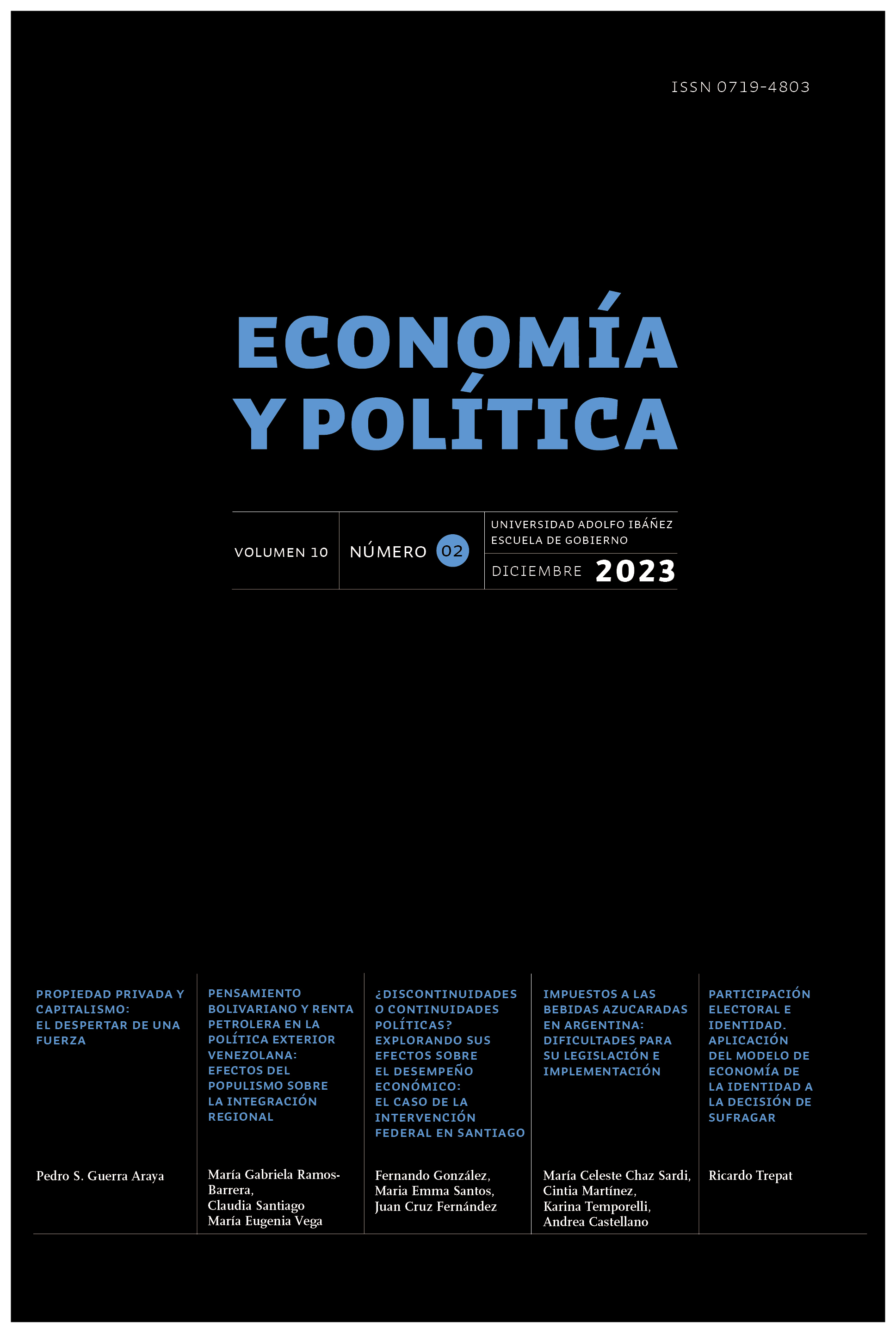Political discontinuities or continuities? Exploring its effects on economic performance: The case of the federal intervention in Santiago del Estero
DOI:
https://doi.org/10.15691/07194714.2023.008Keywords:
Provincial intervention, fiscal transfers, growth, inequality, Santiago del Estero, ArgentinaAbstract
Can the removal of a subnational political elite enhance economic development? In this paper, we address this question by examining the most recent federal intervention in Argentina (Santiago del Estero, 2004), which marked the end of the Juarista government. Employing a synthetic control methodology, we assess four key outcomes: economic growth, inequality, fiscal transfers to the provinces, and provincial tax collection. Our findings indicate that despite higher fiscal transfers per inhabitant following the federal intervention, Santiago del Estero did not experience improvements in economic growth or inequality. Furthermore, the intervention resulted in a decline in political competition within the province, giving rise to a new elite (the Zamorism) that has governed ever since. This suggests that in the context of elevated political concentration, provincial economic performance may persistently exhibit inefficiency, wherein increased resources fail to translate into improved outcomes. Merely changing rulers, it appears, is insufficient to stimulate economic development.


